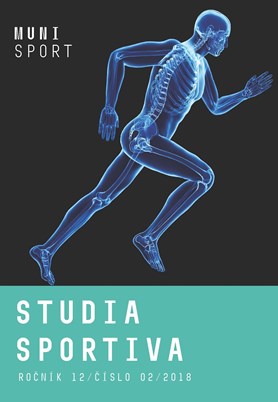Příjem tekutin během vytrvalostního zatížení – pít podle pocitu žízně, ano nebo ne?
Fluid intake during endurance exercise – is drinking to thirst optimum?
Author(s): Michal KumstátSubject(s): Sports Studies
Published by: Masarykova univerzita nakladatelství
Keywords: hydration; sports performance; ad libitum; thirst
Summary/Abstract: In case of insufficient fluid intake, excessive water loss from the body by sweating or a combinationof both factors results in dehydration in athletes. Individually controlled fluid intake during exercisebased on the knowledge of sweating rate is an optimal strategy that allows athletes to control theextent of dehydration and minimises the negative impact on sports performance. However, currentrecommendations are criticised by contemporary literature due to the overestimation of the undesirableeffects of dehydration on sports performance. The “benevolent” strategy of fluid intake duringan exercise, regulated by the dictate of thirst, is being re-evaluated with evidence-based support inthe available scientific literature. The theoretical work aims to critically discuss two contrasting strategiesof fluid intake during endurance exercise, their impact on the progression of dehydration and onathlete’s performance. Recent publications on the topic of autonomous and prescribed fluid intake inthe sport were the background for the discussion. Based on the current literature, autonomous drinkingbehaviour is recommended to majority of athletes participating in an exercise with a duration of< 90 min as it sufficiently prevents from overdrinking. Prescribed drinking regime should be adoptedby endurance athletes in hot environments (> 30 °C) when exercise duration exceeds 90 min and by anelite athlete during daily multiple-session training.
Journal: Studia sportiva
- Issue Year: 12/2018
- Issue No: 2
- Page Range: 70-78
- Page Count: 8
- Language: English, Czech

